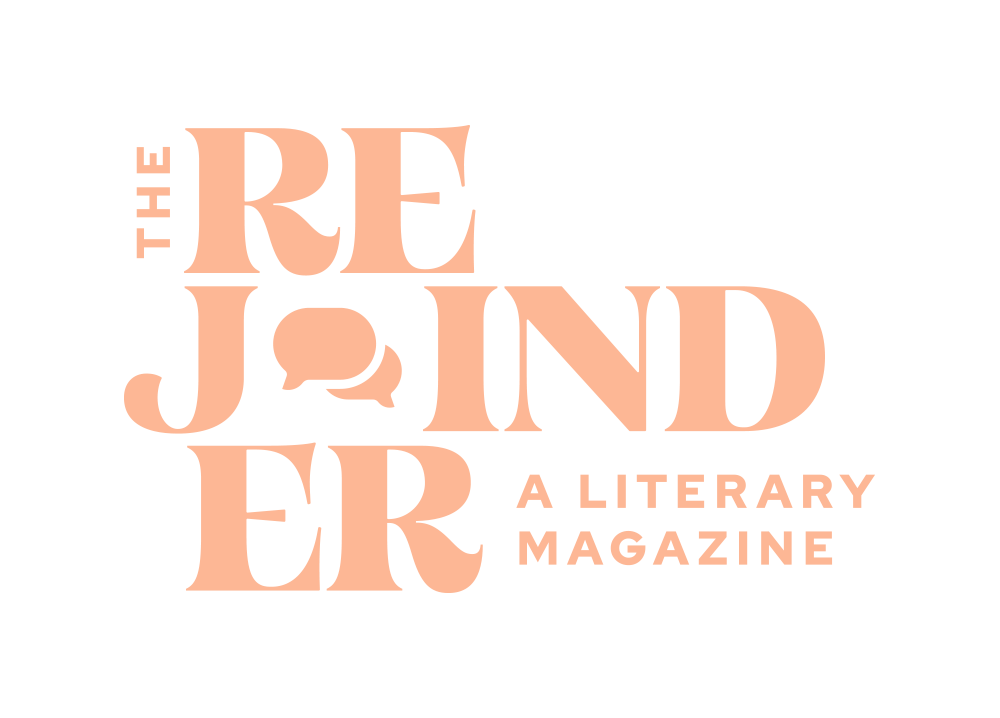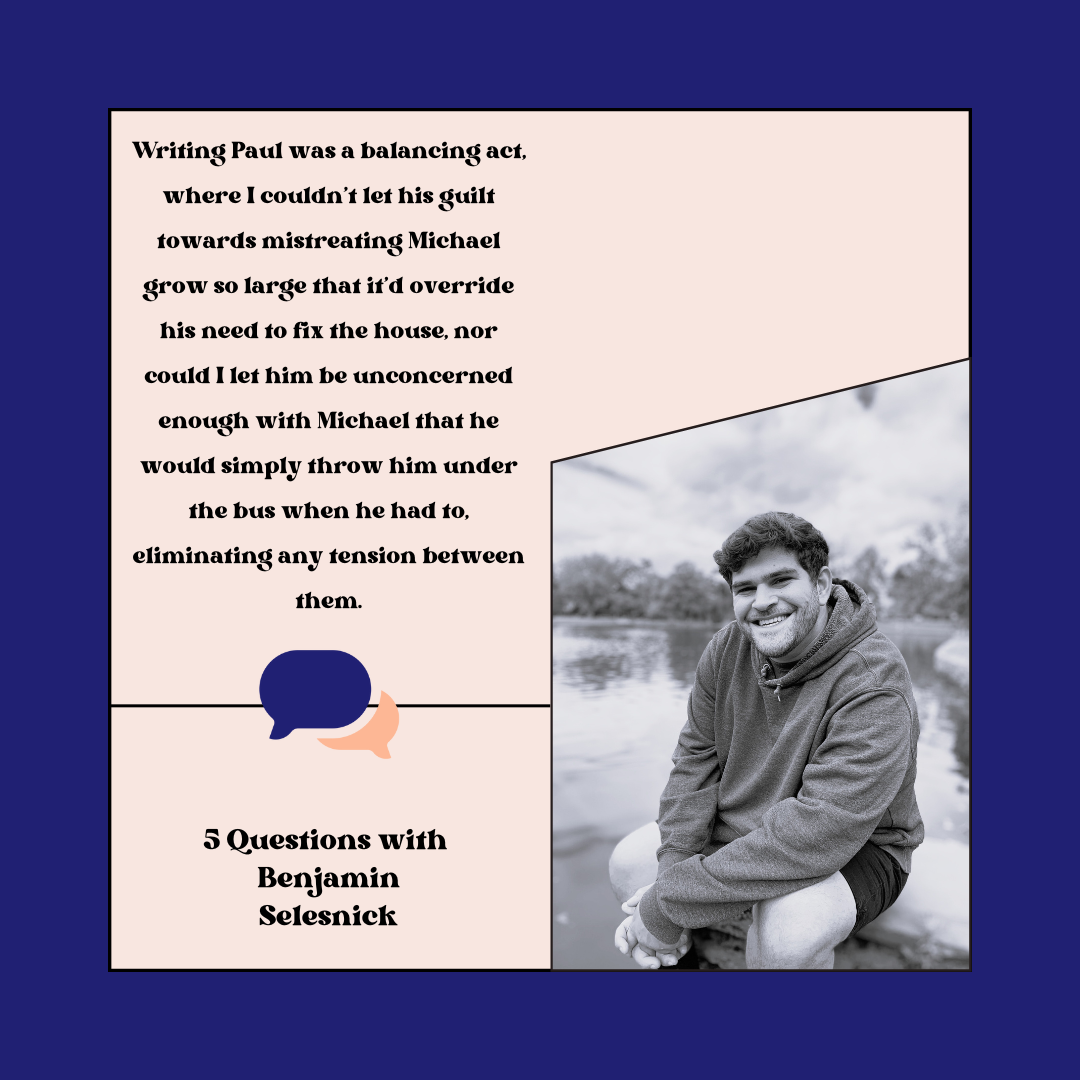5 Questions with Benjamin Selesnick
Last week, we published the final installment of Benjamin Selesnick’s story, “The Hole in the Floor.” Marissa Castrigno spoke with Benjamin about working as both a writer and therapist, countertransference, and Joyce Carol Oates.
I’m interested in any tension you might feel coming to the page as both an artist and a therapist while writing about therapists and therapy. Do you feel the need to add some authorial distance between yourself and Paul when characterizing him or putting him in context? Especially in a story where he creates such a grave ethical dilemma for himself.
Certainly, but more so when writing other therapy stories that are much more about the therapeutic relationship over the course of a fictionalized therapy. The therapist in those pieces might be thinking things I would in similar situations, and I have to make sure that I fictionalize the therapist far enough away from me, beyond simple biographical information, so as to genuinely feel like a person different than myself; but given how egregious Paul’s ethical actions are, I didn’t worry much in this case about how he might reflect on me were one of my patients or colleagues to read this story.
That being said, the Hope Center is much like a place I had briefly worked at during my psychotherapeutic training, and the ethical dilemma of needing to practice with multiple, often conflicting, interests—being that of the treatment center, which wanted to get as much from Medicaid and the government that it could; the parole officers who were often more interested in being hard-lined and by the book (as Fiona is) than actually supporting the patient; and, of course, the patient themself—was something I had extreme difficulty working under. Paul is less distraught by this dilemma, but is still very cognizant of his responsibility towards his patients. And yet, how Paul has also clearly internalized the dehumanizing aspects of the criminal justice system, in its interaction with mental health care, that is omnipresent when treating recently or soon-to-be incarcerated people—wielding his power over Michael to help him fix his house is something I couldn't imagine him doing if he worked in private practice, even if he had the appropriate leverage.
One more question about the intersection of your two practices. Even in a purely fictional world, it would be impossible to separate entirely from your extensive psychotherapeutic training. Do you ever find yourself writing characters you’d want to treat, or characters you’ve realized later are inspired by intriguing encounters at work?
Both! As for the former: since entering this field, I’ve woven therapy into most of what I've written, and at times have taken characters from previous non-therapy stories and have thrown them into therapy, creating what’s essentially a Part II of their journey. This has yielded mixed results, as dramatizing the act of therapy can be a bit of a challenge; so much has been written about it before, and without falling into cliches it can be tough to tell a story that feels inventive and doesn’t spend so much time exploring theory or (in reference to your previous question) revealing too much about myself as a therapist.
As for the latter: when writing therapy, I’m always cognizant of not putting my patients’ stories on the page. Thankfully, there's only been one occasion so far when a therapy story that I was working on turned into an exploration of my experience of countertransference with a specific patient I was treating. Although I was proud with how the story was coming out, I had to shelve it or else rewrite the whole thing, which I wasn’t willing to do.
As the story goes on, we feel Paul’s regret mounting as he realizes the gravity of his mistake and the real scale of the risk he took. Do you think his emotional turn is motivated by the possibility of getting caught? Is it more his internal sense of morality, or an external fear of consequence?
I bet Paul would want to believe that it was his sense of morality that was motivating him, but I think his motivations were much more primitive: he was going to get caught, and without the job (and with potentially facing legal consequences), he wouldn’t be able to provide for himself or his daughter. The higher-order concern of responsibility is present in his thought process—feeling himself to be on a higher ethical pedestal in choosing to be a therapist and existing in that place of power is a recurrent topic—but the desperation he feels is too great; he’s raising his daughter alone, he’s made irresponsible financial choices, and without any other available options to his knowledge, whatever ethical considerations he has get dropped to the bottom of the pile, at Michael’s detriment.
How did your understanding of Michael’s relationship to Paul change between the first and final drafts of this story? Paul’s motivations and perceptions seemed relatively straight-forward from the early stages, but what did you learn about Michael, and how he might see Paul?
Ironically, I felt much more sure in Michael’s experience from the start than I did with Paul. At the treatment center I’d worked at, I’d spent time with many men who’d made destructive decisions, either of their own volition or strongly influenced by their current and historical environments, and had consequently become familiar with that gray area, where, as in the case with Michael, he wants to do what’s right, while also being impulsive. Michael wanted to be with his son, he wanted to be out of treatment, and when he saw the opportunity to do both with what he was assured would be no consequences, he made his move. When Paul offered him the role and Michael convinced himself it was a good idea, Paul stopped being in a position of authority over him, which allowed Michael to be more open in his conversations with Paul, but he also could sense Michael’s desperation and knew that if push came to shove, he could use it to his advantage. All of this was pretty clear to me from the first draft.
Paul, on the other, felt like more of a mystery. Why—and how—could a therapist make a deal like the one Paul makes? Understanding his motivations and becoming comfortable writing from his vantage point where the actions he took felt justified was a challenge; just how blasé did I want him to be in his consideration of Michael? If he wasn’t very concerned with Michael’s wellbeing, then is he even the kind of person who would become a therapist in the first place? If he was very concerned, would he even ask him to fix his house? Writing Paul was a balancing act, where I couldn’t let his guilt towards mistreating Michael grow so large that it’d override his need to fix the house, nor could I let him be unconcerned enough with Michael that he would simply throw him under the bus when he had to, eliminating any tension between them.
What’s exciting to you in fiction right now? Whether with your own work or what you’re reading.
This has been a particularly chaotic and challenging year, and as a result I’ve been much less explorative in what I’ve been reading, choosing instead to stay to my comforts: Harlan Coben, Philip Roth, and Joyce Carol Oates; writers whose bibliographies are so large that I can always go out and find another of their works when the need arises.
With Oates, though, there’s been a greater purpose to my reading of her work: since I discovered her writing about a decade ago, I’ve been taken with her ability to depict literary horror and suspense, where the threat encroaching upon the protagonist and their loved ones comes not only from the outside world but from the protagonist themselves. This dynamic of a crazed protagonist being so wracked by trauma and stress that they cannot see the threat within themselves is exactly what I’m working towards in a literary suspense novel I’ve been drafting for the past few months. I’ve been repeatedly coming back to Oates’s work in that time, absorbing her narrative voice as I try to figure out my own.

